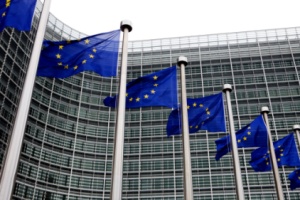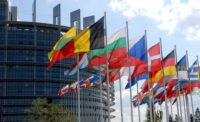 The European Union (EU) has reached an informal agreement on the review of legislation to limit worker exposure to electromagnetic fields (EMF) – although it didn't take into consideration demands from trade unions to look at the long-term effects on human health of exposure to these fields.
The European Union (EU) has reached an informal agreement on the review of legislation to limit worker exposure to electromagnetic fields (EMF) – although it didn't take into consideration demands from trade unions to look at the long-term effects on human health of exposure to these fields.
According to the European Trade Union Institute (ETUI), uncertainty over the increasing use and risks of technology which produces electromagnetic fields (e.g. mobile phone, MRI scans in hospitals, personal computers etc.) caused the EU in 2004 to adopt legislation setting minimum requirements and limits for exposure of workers to the effects of EMF.
New medical evidence as well as lobbying from the medical-technological sectors led to the legislation being postponed and a new debate resulting in the Commission proposal for review of the EU rules in June 2011.
This review of EMF legislation falls under the co-decision procedure and needs to get adopted by the European Parliament as well as the Council. In the European Parliament, French MEP Elisabeth Morin-Chartier (EPP Group) is the rapporteur for this review. A first reading by the plenary of the parliament is expected to take place in February 2013.
European trade unions have taken strong positions on possible changes to this EMF regulation. In general they have criticized the fact that the Commission proposal does not take into consideration the long-term effects of exposure for workers to electromagnetic waves.
Evaluating the Council’s latest compromise, Laurent Vogel of the ETUI said: “The EMF directive is one of the very few initiatives in the field of health and safety which will be probably adopted under the present Commission. From that point of view, the Council’s compromise is positive and I expect that it will be supported by the European Parliament. The big challenge for the coming years is about protecting adequately the workers against long term effects of EMF. The Trade Unions will insist for new initiatives on the basis of scientific evidence”


